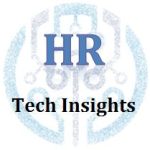I recently met with Ji-A Min, the head data scientist at the Toronto-based HR tech company Ideal (and a contributor to TLNT). The company is interesting because its product uses artificial intelligence in the candidate screening process.
Min took me through some of the nuts and bolts of the technology, but what really struck me is not what’s  extraordinary about the new process, but what’s extraordinary about the old one.
extraordinary about the new process, but what’s extraordinary about the old one.
The old manual process for screening resumes is extraordinary because:
- It’s shockingly tedious and unrewarding to do.
- It’s based on remarkably shallow judgements (15 seconds – or less — to scan a resume).
We screen candidates this extraordinary way because we must create a shortlist somehow, and this is the best we could do (until now).
If we ask, “Can technology vendors build AI that is as smart as a human?” then the answer is no. If we ask the question, “Can AI do this miserable job at least as well as a human and a thousand times faster?” then the answer is yes.
Companies use this sort of tool because they want to cut time to fill, and that’s an outcome these new technologies can easily deliver on. Quality of hire will depend more on the final selection stage, and at that stage humans still dominate, for the moment.
What is interesting?
- AI’s have rapidly moved from science fiction to the everyday world. We’ll probably stop calling it AI and come to think of machine learning as a standard capability commonly found in software.
What is really important?
- You, as a talent acquisition professional, are not responsible for building, training or updating the AI any more than you’re responsible for updating the code in an ATS. The vendor has the data scientists who will be continually assisting the AI to learn more. Furthermore, the AI won’t just be learning from its experience at your company, it will be learning from its experience at all the clients.
- Thanks to cloud-based systems with strong APIs, some of these products (like Ideal) can plug right into your existing systems so there is minimal need to change processes or do “implementation.” This trend to being able to plug in these third-party capabilities will greatly expand the options for HR.